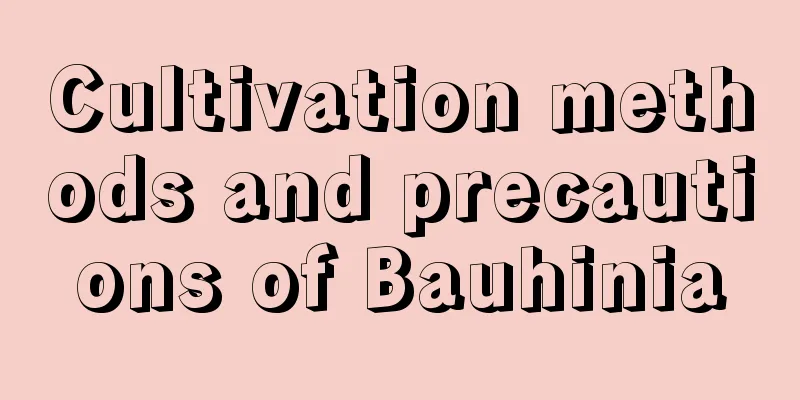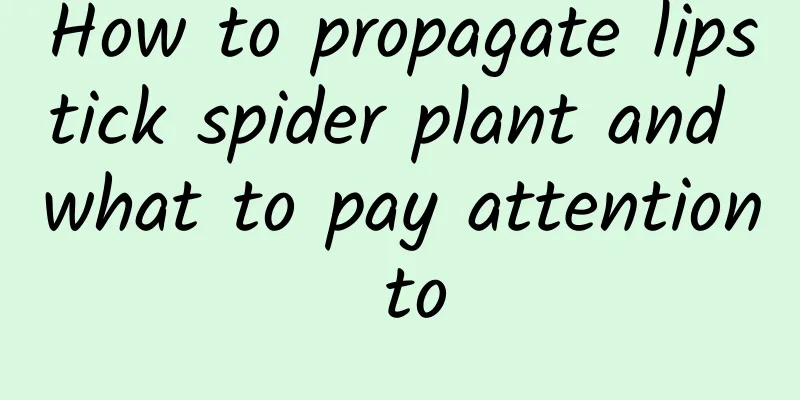How to grow large-flowered cymbidium (home-growing method)

1. Maintenance methods1. Light: Large-flowered Cymbidium requires long-term light. However, direct sunlight in summer can cause it to suffer from sunburn, so proper shade is needed. In winter, it should be placed in a sunny place for a long time. 2. Soil: Cymbidium orchids do not have high requirements for soil. Fertile, loose, well-drained acidic soil is preferred. If it is artificially prepared, it is better to use fern roots, mosses, etc. as the growth medium. 3. Watering: Cymbidium has good drought tolerance. Its pseudobulb can store water. If the pseudobulb shriveles and shrinks, it means it is lacking water. In addition to watering in summer, you should also spray water on the leaves, which can effectively reduce the temperature and increase the humidity. During the flowering period, the amount of water needs to be reduced to prevent the flowers from getting sick and developing brown spots. 4. Fertilization: Cymbidium has high requirements for fertilizer. Except for applying less fertilizer or no fertilizer in the seedling stage, a thin layer of fertilizer water can be applied every 10 days during the growing period. Generally, fertilizer should be applied once a week in spring and summer, 2-3 times a month in autumn, and stopped in winter. Fertilizer should be a compound fertilizer with equal amounts of nitrogen, phosphorus and potassium, and more potassium fertilizer can be applied in autumn. 2. Breeding techniquesCymbidium is often propagated by division. Division is best done in spring. Take the plant out of the pot and divide it. Keep more than 3 pseudobulbs for each plant. After cutting, dry the wound before planting. Generally, the plant should be divided once every three years. After division, it is suitable to be cultivated in a warm and humid environment, and normal maintenance can be carried out after it has new buds. 3. Pest and disease control1. Diseases: The main diseases are leaf blight, anthracnose and leaf spot, which can be controlled with carbendazim solution. 2. Pests: Common pests include aphids, red spiders and scale insects, etc., which can be killed by spraying diluted omethoate solution. |
<<: Is Camellia suitable for indoor cultivation?
>>: Can the leaves of Kalanchoe be propagated by cuttings?
Recommend
The main value of the flower
The ornamental value of the flower of heaven The ...
How to plant cosmos and what are the planting time and methods
Cosmos planting time The cultivation season of Co...
What to plant in January
1. Cabbage You can plant some cabbage, but in ord...
How to grow flowers in pine needle soil
What is pine needle soil Pine needle soil is actu...
Cultivation methods and precautions of Globe amaranth
How to cultivate Globe amaranth Lighting requirem...
Planting and management of honeydew melon
In the past two years, the honeydew melon has bee...
How to propagate barberry by cuttings?
Barbary thorn generally refers to Euphorbia pilos...
High-yield planting technology of purse beans
The scientific name of the bean is Phaseolus vulg...
The growth environment conditions and characteristics of yew
Environmental conditions and requirements for the...
Why do lily buds fall off before they open?
Lilies are very refreshing and many flower lovers...
What to do if snapdragon wilts
The reason for this phenomenon As the saying goes...
The difference between white clover and alfalfa, is white clover a four-leaf clover?
1. Is white clover a four-leaf clover? White clov...
How to grow green cloud grass
Farming methods soil The soil for growing green c...
Cultivation methods and precautions of clover
1. Soil selection When planting clover, you shoul...
Advantages and disadvantages of Abans roses
The Albans rose is a variety bred in the Netherla...









